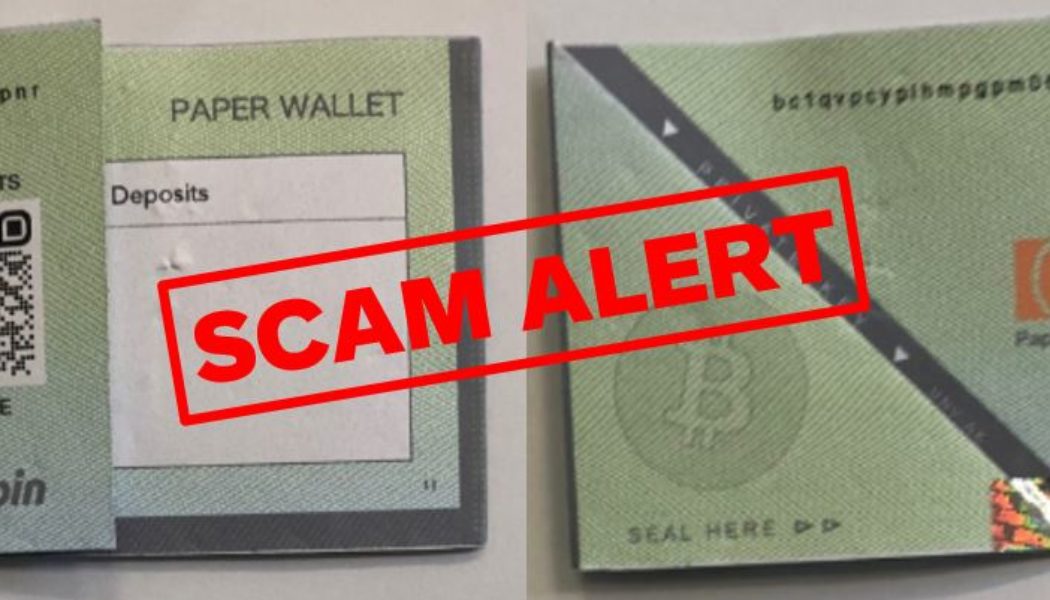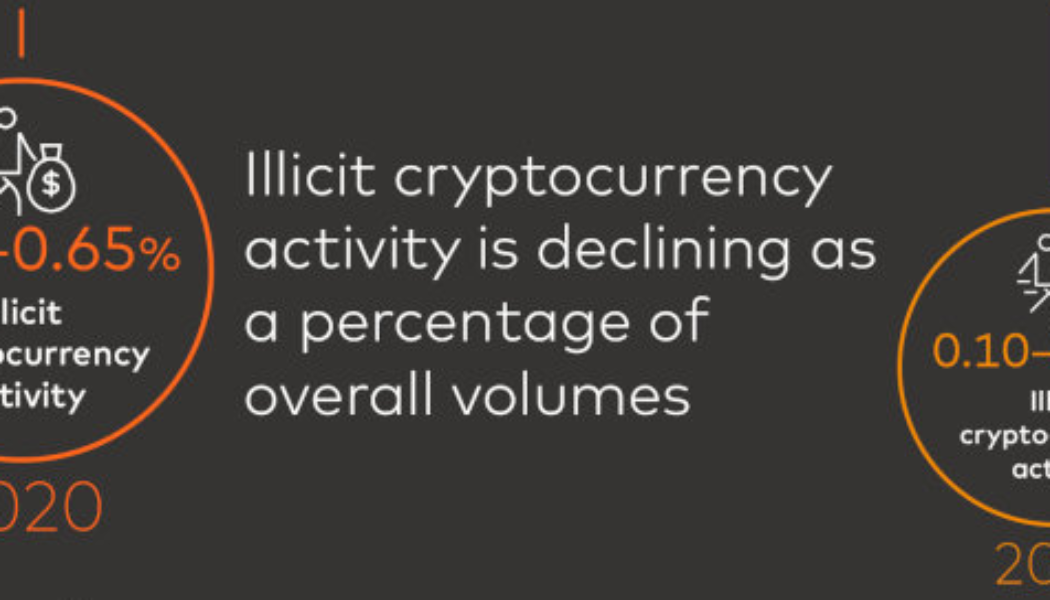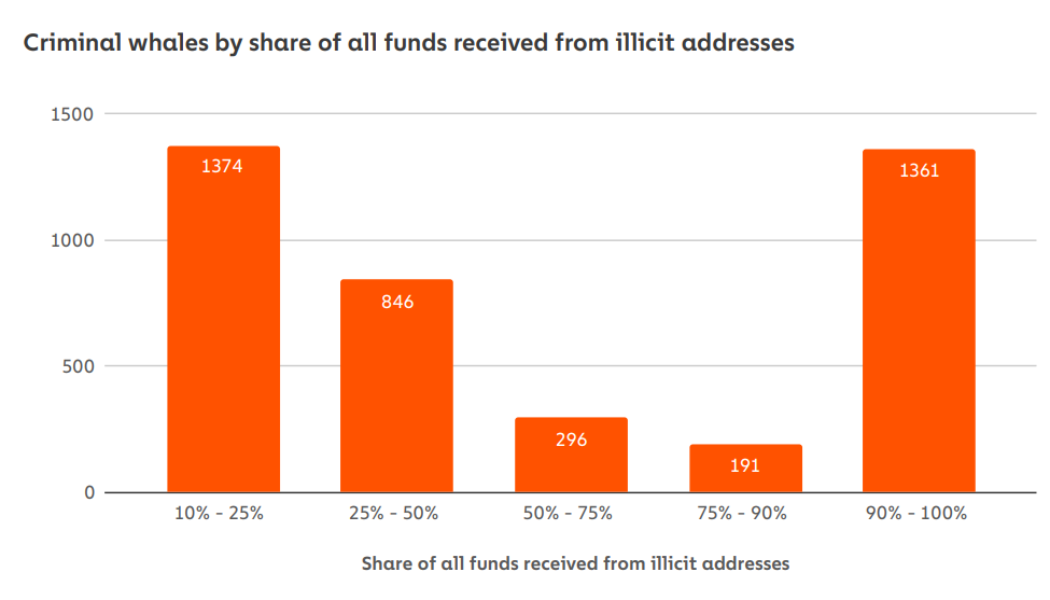Crypto scams
Front-running scams rampant on YouTube with 500% surge in 2022: CertiK
Front-running scam bots are significantly gaining traction on YouTube, with the number of dubious videos increasing six-fold in 2022 according to a new report from blockchain security firm CertiK. In the firm’s Dec. 1 report, CertiK explores how a wave of front-running bot scams are promising free returns as high as 10X a day, but ultimately end up swiping people’s funds. Notably, CertiK’s analysis found 84% of videos on YouTube mentioning “front running bot” were scams, with the number increasing 500% from 28 videos in 2021 to 168 videos in 2022: “There are common themes in all of these videos: free code and huge returns. Successful runners won’t give away free code on a social media site, they will sell it for a large amount on underground forums.” The scam itself genera...
Aussies warned to avoid crypto paper wallets they find on the street
Australians have been warned to stay away from suspicious-looking fake Bitcoin paper wallets, which work by luring victims into accessing a lucrative crypto wallet but will ultimately drain them of their own crypto holdings. According to a Nov. 22 post on the Facebook page of the NSW Police Force, the scam starts as a paper cryptocurrency wallet with a QR code, which is made to appear like a legitimate Bitcoin paper wallet. These are strewn by scammers in public locations such as streets or parks. An example of the scam crypto paper wallets. Source: NSW Police Force An individual that locates the paper wallet and scans the QR code is directed to click on a link to access a crypto wallet with up to $16,000 Australian dollars ($10,000). The person is then asked to pay a withdrawal fee ...
Crypto scammers are using black market identities to avoid detection: CertiK
Crypto scammers have been accessing a “cheap and easy” black market of individuals willing to put their name and face on fraudulent projects — all for the low price of $8, blockchain security firm CertiK has uncovered. These individuals, described by CertiK as “Professional KYC actors” would, in some cases, voluntarily become the verified face of a crypto project, gaining trust in the crypto community prior to an “insider hack or exit scam.” Other uses of these KYC actors include using their identities to open up bank or exchange accounts on behalf of the bad actors. According to a Nov. 17 blog post, CertiK analysts were able to find over 20 underground marketplaces hosted on Telegram, Discord, mobile apps, and gig websites to recruit KYC actors for as low as $8 for simple “gigs” lik...
Illicit crypto usage as a percent of total usage has fallen: Report
Illicit cryptocurrency activity in 2021 and the first quarter of 2022 has declined as a percentage of overall crypto activity, according to blockchain forensics firm CipherTrace. The cryptocurrency industry has long held a reputation in some jurisdictions as a haven for illegal activity. However, CipherTrace estimates that illicit activity was between 0.62% and 0.65% of overall cryptocurrency activity in 2020. The firm reported that it has now fallen to between 0.10% and 0.15% of overall activity in 2021. Source: CipherTrace In its Cryptocurrency Crime and Anti-Money Laundering Report released June 13, CipherTrace outlined that the top ten decentralized finance (DeFi) hacks in 2021 and Q1 2022 netted attackers $2.4 billion. Over half of that figure came from just two events, the largest be...
Aussie consumer group calls for better crypto regs due to ‘lagging laws’
Australian consumer advocacy group CHOICE has called on the federal government to provide better protection for crypto investors while submitting a proposed regulatory framework for cryptocurrency exchanges operating in the country. The regulatory framework was submitted in response to the federal Treasury’s consultation paper for “crypto asset secondary service providers” (CASSPs) defined as firms providing custodial crypto wallets and exchange services. CHOICE commented: “As it stands, enforceable protections in the unregulated cryptocurrency market are somewhere between negligible and non-existent.” Outlining four main areas in its framework, the group called for a single definition of crypto for better regulation, a license for exchanges in line with current financial licensing, ...
4% of crypto whales are criminals and they have $25B between them: Chainalysis
Chainalysis data shows that 4068 criminal whales (roughly 4% of all whales) are hodling more than $25 billion worth of cryptocurrency between them. The blockchain analytics firm defines criminal whales as any private wallet that holds more than $1 million worth of crypto with over 10% of the funds received from illicit addresses tied to activity such as scams, fraud and malware. The data is from the “Criminal Balances” section of the Crypto Crime Report that explores criminal activity on the blockchain over 2021 and early 2022. The wide-ranging report also covers topics such as Ransomware, Malware, Darknet markets and NFT related crime. “Overall, Chainalysis has identified 4,068 criminal whales holding over $25 billion worth of cryptocurrency. Criminal whales represent 3.7% of all cryptocu...

















